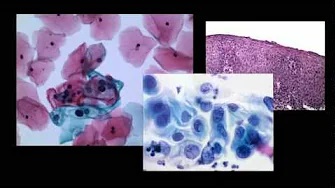Race, rituximab, and relapse in TTP
Authors
Shruti Chaturvedi, Department of Medicine, Johns Hopkins University, Baltimore, MD
Ana G. Antun, Department of Medicine, Emory University, Atlanta, GA
Andrew M. Farland, Department of Medicine, Wake Forest University, Winston-Salem, NC
Ryan Woods, Department of Medicine, Wake Forest University, Winston-Salem, NC
Ara Metjian, Department of Medicine, University of Colorado, Denver, CO
Yara A. Park, Department of Pathology and Laboratory Medicine, University of North Carolina at Chapel Hill, Chapel Hill, NC
Gustaaf de Ridder, Department of Pathology and Laboratory Medicine, University of North Carolina at Chapel Hill, Chapel Hill, NC, Geisinger Medical Laboratories, Danville, PA
Briana Gibson, Department of Pathology and Laboratory Medicine, University of North Carolina at Chapel Hill, Chapel Hill, NC, Department of Pathology and Laboratory Medicine, Emory University, Atlanta, GA
Raj S. Kasthuri, Department of Medicine, University of North Carolina at Chapel Hill, Chapel Hill, NC.
Darla K. Liles, Department of Medicine, East Carolina University, Greenville, NC
Frank Akwaa, Department of Medicine, University of Rochester, Rochester, NY
Todd Clover, St Charles Healthcare, Bend, OR
Lisa Baumann Kreuziger, Versiti Blood Research Institute, Milwaukee, WI,Department of Medicine, Medical College of Wisconsin, Milwaukee, WI.
J Evan Sadler, Department of Medicine, Washington University, St Louis, MO
Meera Sridharan, Department of Medicine, Mayo Clinic, Rochester, MN
Ronald S. Go, Department of Medicine, Mayo Clinic, Rochester, MN
Keith R. McCrae, Department of Medicine, Cleveland Clinic, Cleveland, OH
Harsh Vardhan Upreti, Department of Medicine, Johns Hopkins University, Baltimore, MD.,Department of Medicine, University of Pittsburgh Medical Center, Pittsburgh, PA
Angela Liu, Department of Medicine, Johns Hopkins University, Baltimore, MD
Ming Y. Lim, Department of Medicine, University of Utah, Salt Lake City, UT
Radhika Gangaraju, Department of Medicine, University of Alabama at Birmingham
X Long Zheng, Department of Pathology and Laboratory Medicine, University of Kansas Medical Center, Kansas City, KS
Jay S. Raval, Department of Pathology, University of New Mexico, Albuquerque, NM
Camila Masias, Baptist Health South Florida, Miami, FL
Spero R. Cataland, Department of Medicine, The Ohio State University, Columbus, OH
Andrew Johnson, Department of Laboratory Medicine and Pathology
Elizabeth Davis, Department of Medicine, University of Minnesota, Minneapolis, MN
Michael D. Evans, Clinical & Translational Science Institute, University of Minnesota, Minneapolis, MN
Marshall A A. Mazepa, Department of Medicine, University of Minnesota, Minneapolis, MN
Publication Date
9-22-2022
Abstract
Immune-mediated thrombotic thrombocytopenic purpura (iTTP) is characterized by recurring episodes of thrombotic microangiopathy, causing ischemic organ impairment. Black patients are overrepresented in iTTP cohorts in the United States, but racial disparities in iTTP outcome and response to therapy have not been studied. Using the United States Thrombotic Microangiopathies Consortium iTTP Registry, we evaluated the impact of race on mortality and relapse-free survival (RFS) in confirmed iTTP in the United States from 1995 to 2020. We separately examined the impact of rituximab therapy and presentation with newly diagnosed (de novo) or relapsed iTTP on RFS by race. A total of 645 participants with 1308 iTTP episodes were available for analysis. Acute iTTP mortality did not differ by race. When all episodes of iTTP were included, Black race was associated with shorter RFS (hazard ratio [HR], 1.60; 95% CI, 1.16-2.21); the addition of rituximab to corticosteroids improved RFS in White (HR, 0.37; 95% CI, 0.18-0.73) but not Black patients (HR, 0.96; 95% CI, 0.71-1.31). In de novo iTTP, rituximab delayed relapse, but Black patients had shorter RFS than White patients, regardless of treatment. In relapsed iTTP, rituximab significantly improved RFS in White but not Black patients. Race affects overall relapse risk and response to rituximab in iTTP. Black patients may require closer monitoring, earlier retreatment, and alternative immunosuppression after rituximab treatment. How race, racism, and social determinants of health contribute to the disparity in relapse risk in iTTP deserves further study.
Recommended Citation
Chaturvedi S, Antun AG, Farland AM, Woods R, Metjian A, Park YA, de Ridder G, Gibson B, Kasthuri RS, Liles DK, Akwaa F, Clover T, Baumann Kreuziger L, Sadler JE, Sridharan M, Go RS, McCrae KR, Upreti HV, Liu A, Lim MY, Gangaraju R, Zheng XL, Raval JS, Masias C, Cataland SR, Johnson A, Davis E, Evans MD, Mazepa MA; United States Thrombotic Microangiopathies Consortium. Race, rituximab, and relapse in TTP. Blood. 2022 Sep 22;140(12):1335-1344. doi: 10.1182/blood.2022016640. PMID: 35797471; PMCID: PMC9710186.

